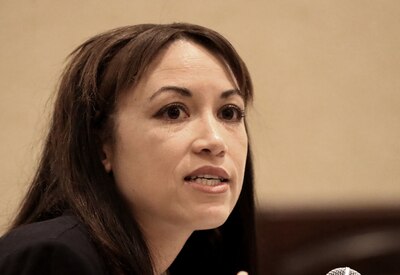When Tennessee’s General Assembly approved an education voucher plan this month within hours of receiving compromise legislation, both supporters and critics set to work examining the final language.
The 24-page bill was a mashup of House and Senate versions that went through multiple revisions over two months, and it also added new language with input from Gov. Bill Lee’s administration in an effort to withstand potential litigation.
Once the final bill is signed into law, the state will be charged with building a major new education program that the Republican governor says will give parents more choices beginning in 2021 in three school districts based in Memphis and Nashville.
Critics, meanwhile, contend that the plan won’t help the children it’s intended for — those from low-income families who attend low-performing schools — and instead will divert resources from the public schools that currently serve those students.
The final legislation authorizes the distribution of education savings accounts, a newer type of voucher that will give eligible families an average of $7,300 in taxpayer money annually to pay for private school tuition or other education-related expenses.
Here’s what the fine print says:
1. The state education department will have broad authority to build the program.
While the legislation outlines the general blueprint, the department is charged with executing the vision, with some rule-making decisions coming from the State Board of Education.
The department’s dozens of new nitty-gritty responsibilities will include developing processes to notify lower-income families about the program, determine student eligibility, approve private schools or services that can participate, and establish a lottery system to select students if the number of applications exceed the number of spots.

Once the program is up and running, the department must administer the education savings accounts, establish a fraud-reporting system, refer suspected fraud cases to law enforcement, and suspend or terminate schools that don’t comply with the rules. It also must produce an annual report that documents the number of students participating, the results of a parent satisfaction survey, overall student performance and “graduation outcomes,” and the growth scores coming out of participating private schools based on annual state math and English tests taken by ESA students.
The department already has some experience administering an education savings account program. The state launched its Individualized Education Accounts for students with certain disabilities in 2017. With 137 students now participating, the program is much smaller than the new one is projected to be, with up to 5,000 students expected to sign up in its first year. But administrators of the smaller program have been praised for their tight oversight.
2. The state also can contract with a nonprofit group for help.
One sentence in the legislation gives the department leeway to “contract with a nonprofit organization to administer some or all portions of the program.”
Florida, for example, is an early adopter of voucher programs and uses a nonprofit organization to administer scholarships for Florida schoolchildren.
“There are already templates,” said Shaka Mitchell, who heads the pro-voucher Tennessee Federation for Children. “If we want to accelerate growth in Tennessee, there’s no need to rehash all the work that’s been done in other states.”
But voucher critics worry that bringing in a contractor could make the program’s administration and performance less transparent.
“The more that remains under public institutional control, the better,” said Gini Pupo-Walker, speaking on behalf of the Tennessee Educational Equity Coalition, which opposed the governor’s vouchers plan.
3. Reimbursements to local districts aren’t guaranteed.
Since school districts in Memphis and Nashville are expected to lose per-pupil dollars when some students opt to leave public schools, Lee’s original proposal included money to reimburse those school systems for their funding losses in the program’s first three years.
The idea was to help districts in the transition as a yearly average of $7,300 follows the students to their education savings accounts. A subsequent revision directed that any unused money earmarked for the program will go to rural districts with schools in the state’s bottom 5%.
Naysayers suspected that the reimbursements were an empty promise, and that could be the case. The bill’s final language says the funds are “subject to appropriation.”
Thus, those reimbursements won’t be distributed if the governor and legislature decide later not to allocate up to $165 million over three years to offset expenses based on full participation in the program.
In this year’s budget, Lee already diverted $25 million that was to be set aside for the reimbursements and put that money instead toward fighting hepatitis C in state prisons.
Under questioning from Sen. Jeff Yarbro, a Nashville Democrat, about the state’s moral and financial obligations to reimburse districts, Sen. Brian Kelsey cited some wiggle room, especially since the state doesn’t expect that the maximum number of students will sign up to participate.
“It very clearly says that this school improvement fund shall be subject to appropriation,” said Kelsey, a Republican and voucher supporter from the Memphis suburb of Germantown, who helped to draft the bill’s final language.
4. It’s not really a pilot program, even though it’s branded that way.
While the legislation formally establishes the “Tennessee Savings Account Pilot Program,” the final bill does not include language that is typical for a pilot program.
In government, a pilot program usually operates under a “sunset” clause and undergoes regular legislative reviews to determine its future. In Tennessee, even the entire state education department operates under a sunset provision.
The voucher legislation includes no such clause.
That means it would be harder to dissolve the program, even if it’s not showing positive results. The legislature would have to jointly pass new legislation to that effect — a more difficult path than automatically reviewing a trial program to determine if the experiment is showing results and then deciding whether to renew it.
The omission of a sunset provision in the final bill drew the ire of both Democrats and Republicans.
“Once these things get started, even if it’s starting to go bad, we’re not going to be able to stop it,” said Rep. Richard Briggs, a Knoxville Republican who voted against the proposal.
But Senate Majority Leader Jack Johnson, who sponsored the bill for the governor, noted that the plan will affect only up to 15,000 students by its fifth year in two counties.
“If that doesn’t qualify as a pilot program, I don’t know what does,” said the Franklin Republican, whose district would not be affected.
5. One provision dealing with student athletes speaks to a bigger question.
The bill’s language about public school students transferring to private schools is consistent with the bylaws of the state’s athletic association when it comes to participating in sports.
The Tennessee Secondary Schools Athletic Association, also known as the TSSAA, oversees sanctioned sports programs for more than 400 public and private schools and maintains rules designed to prevent the exploitation of high school students by special interest groups, including those that might “cherry pick” talented student athletes.

TSSAA Executive Director Bernard Childress says the voucher legislation appears to mirror his organization’s bylaws.
It specifies that recipients of education savings accounts are ineligible to participate in a sport for the first year that they attend a private school if they played the sport at a public school the previous year and have not moved out of their district.
“If a really good athlete finds out they have to sit out for a year if they transfer schools, they usually don’t transfer,” said Childress, whose office was consulted about the voucher legislation.
“That’s why the rule is there — to make sure we are maintaining athletics in the proper perspective, fostering fair competition, and doing everything we can to prevent the exploitation of student athletes,” Childress added.
Still, the issue speaks to the admissions policies of private schools and which students they will accept.
“Will they take special needs kids in these schools? Probably not. Will they take star athletes in these schools? Probably so,” said Rep. Antonio Parkinson, a Memphis Democrat, speaking against the bill on the floor of the House.
In other words: Is this “education choice” legislation about parents choosing private schools or about private schools choosing students? That’s a question and a concern that groups like the Tennessee Educational Equity Coalition will be watching closely, according to Pupo-Walker.
One section of the final legislation suggests that the state will take a hands-off approach when it comes to participating private schools:
“The state gives participating schools and providers maximum freedom to provide for the educational needs of participating students without governmental control. Neither a participating school nor a provider is required to alter its creed, practices, admissions policies, or curriculum in order to accept participating students, other than as is necessary to comply with the requirements of the program.”
You can read the full plan below.


